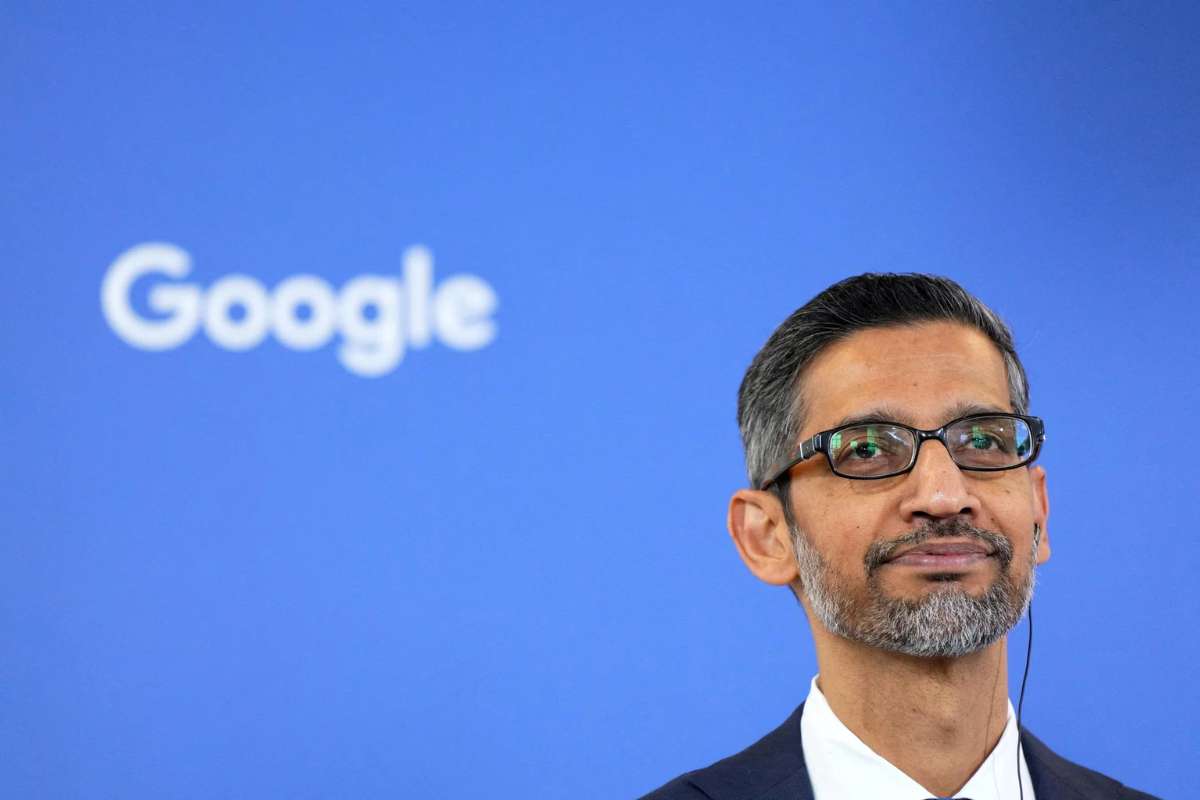Key Points:
- Pichai warns of an AI investment bubble, likening it to the dot‑com era.
- He cautions against blindly trusting AI tools due to inaccuracies.
- He remains optimistic about AI’s transformative future despite challenges.
Alphabet and Google CEO Sundar Pichai has raised fresh alarms about the rapidly intensifying wave of investment pouring into artificial intelligence, warning that the industry may be stepping into a dangerous zone of “irrational” spending. Speaking about the explosive pace of AI development, Pichai said the market is experiencing a moment of extraordinary enthusiasm, one that risks becoming unsustainable if valuations continue to inflate without corresponding returns.
He cautioned that if an AI investment bubble were to burst, no company, including Google, would remain unaffected, underscoring the widespread exposure across the tech landscape. Pichai drew parallels to previous periods of tech exuberance, such as the dot-com era, where early overinvestment eventually gave way to major corrections.
Despite the warnings, he acknowledged that the long-term trajectory of AI remains overwhelmingly positive. Much like the early internet, which endured enormous volatility before reshaping the global economy, Pichai believes AI will ultimately prove transformative even if the path includes turbulence.
He emphasized that Google’s integrated technological stack, from custom chips to massive datasets and advanced AI models, positions the company more securely than many others. Yet he insisted that no level of vertical integration fully shields any firm from broader market forces.
Sundar Pichai Urges Users Not to Blindly Trust AI Outputs
Alongside financial concerns, Pichai highlighted mounting risks related to everyday public use of AI tools. He warned that even the most advanced models remain prone to factual inaccuracies, hallucinations, and misinterpretations, making it essential for users to validate the information they receive.
He stressed that AI should not become a “source of absolute truth,” urging people to use it intelligently and selectively. According to Pichai, users need to understand what these systems are good at and what they are not to avoid misinformation and misplaced trust.
The CEO specifically pointed to conversational AI systems designed to mimic expert-level reasoning, noting that such tools can make errors with confidence, potentially misleading users. He advised combining AI-powered tools with traditional search and established information sources to maintain a balanced and reliable “information ecosystem.”
Sundar Pichai also reiterated that responsible AI usage will require widespread digital literacy, ensuring that individuals can differentiate between credible outputs and flawed or incomplete ones.
Long-Term Promise Meets Real-World Challenges
Despite his concerns, Pichai remains firmly optimistic about the fundamental potential of artificial intelligence. He believes AI will be one of the most significant technological shifts of the century, capable of transforming industries, boosting productivity, and reshaping global economic growth.
However, he acknowledged that these benefits will come with substantial challenges. The immense energy requirements for training and scaling AI systems pose new complications for companies like Alphabet, especially as they push toward aggressive sustainability commitments. Rising energy consumption, Pichai noted, may affect the company’s long-term net-zero goals.
He also addressed broader societal impacts, including workforce disruption. While AI adoption may lead to job displacement, Pichai maintained that individuals who learn to work with AI tools will have an advantage. The goal, he said, should be to ensure that people adapt alongside technological progress rather than be overtaken by it.
In his broader message, Sundar Pichai urged the industry, policymakers, businesses, and users to approach AI development with both excitement and caution, embracing its transformative potential while staying grounded in the risks that come with rapid, unbalanced growth.











